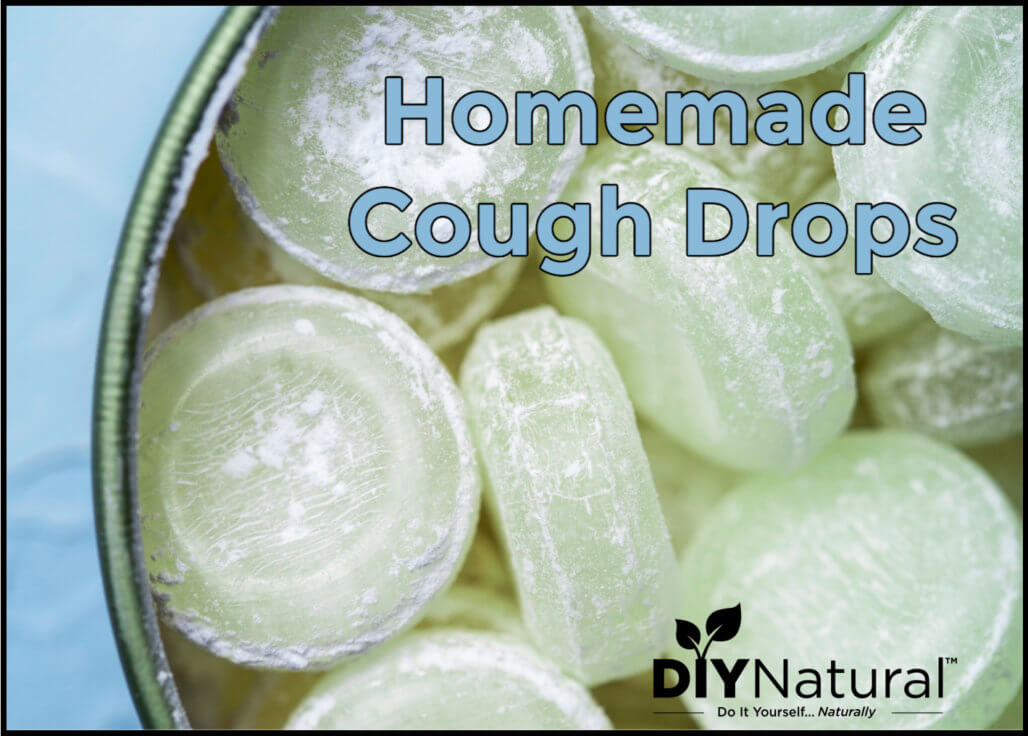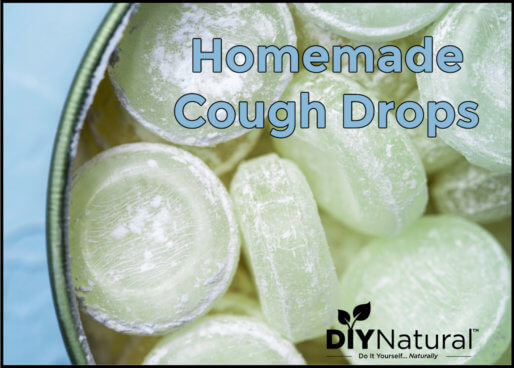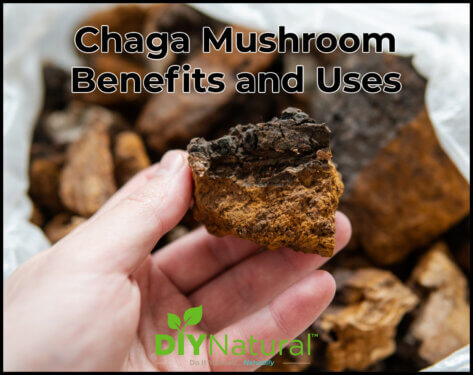
Homemade cough drops are great because you can make them your favorite flavor and even add immune-boosting herbs during cold and flu season.
When a cough lingers at the end of an illness, it’s no fun. But there are ways to help soothe your throat naturally. These homemade cough drops are a great solution!
Best Herbs for Homemade Cough Drops
You don’t HAVE to use medicines when you have a cough. There are several herbs that you can use to make your base for cough drops. Once you have that base, you can add the other ingredients. What you’ll be doing is making a strong tea and then making the cough drops from that. Here are some herbs that can help soothe your sore throat and give it a chance to start healing.
- Horehound
- Slippery Elm
- Plantain
- Mullein
- Marshmallow Root
- Sage
- Rose Petals or Rose Hips
- Lemon Peel or Lemon Balm
- Chamomile
- Peppermint
You’ll need about half a cup of tea (4 ounces) for these homemade cough drops. I take the herbs I want and place them in a strainer, steep the tea and then pull the strainer out. You could also use a cheesecloth or a coffee filter to strain the herbs. When I make cough drops, I’ll make a full cup of tea with horehound, lemon peel, marshmallow root, and sage. I’ll boil it down a bit before adding the rest of the ingredients so that it ends up being 4 ounces once the liquid reduces.
Silicon Molds for Cough Drops
I use and recommend these silicone molds for making your homemade DIY cough drops.

Homemade Cough Drops Recipe
- Prep Time
- 20 minutes
- Active Time
- 15 minutes
- Cooling Time
- 1 hour
- Total Time
- 1 hour 35 minutes
- Servings
- 20 ounces
- Estimated Cost
- $2
Equipment
Instructions
-
Begin making the homemade cough drops by measuring the water, honey, and sugar into a saucepan and bringing it to a boil.
-
Stir and bring the temperature to about 280°F, the soft-to-hard crack stage of making candy.
-
Drop a bit into some cold water to see if it will form a ball. When you get to that point, you can take it off of the heat and allow it to cool just a bit.
-
Using either a spoon or a small scoop, pour or drip drops of the cough drop mixture into the molds (or cookie sheet or parchment paper). If doing the latter, the homemade cough drops may flatten or they may stay in a ball, depending on how hot you got the mix to when you boiled it. Make sure the pieces you make can fit into your mouth easily. I made mine much too big the first time and ended up with a bunch of pieces that looked like broken glass. Not bad, but not the drops that I was looking for.
-
You can also cover them in sugar for a sanded look. This will keep them from sticking together as well.
-
Allow it to cool completely. Place into a container, sealing well. Use when you have a cough.
Notes
It does call for sugar which is the basis for hard homemade cough drops. You can substitute about 25% of an alternative sweetener, but you’ll need the sugar to form the drop. I use raw sugar or make my own, to make it healthier than refined sugar.
Honey is a humectant that can help attract moisture to a dry throat. If you have a wet cough with mucus, you might want to skip the honey. Molasses makes a good substitute.
You can add a teaspoon of lemon juice and/or lemon zest if you prefer lemon-flavored cough drops. The same applies to orange or lime.
Made this recipe?
Mention @diynatural or tag it #diynatural!
Immune Boosting Additions
If you want to add some immune-boosting properties to these homemade honey cough drops, you can add elderberries, echinacea, or maybe even some yellowroot. Be aware though that these things can change the flavor profile and could make the drops more bitter.
In addition to the homemade cough drops, to further boost your immune system during cold and flu season, check out these top 5 wintertime herbs.
Tip: Also check out our ginger wrap for cough. And if you’re looking for cough syrup then check out our homemade cough syrup with elderberry. Lastly, you can use these respiratory essential oils to help alleviate your cough.
Have you tried making homemade cough drops? Let us know your favorite tips!
*******




i am not clear on what is considered a strong tea: could you please give me a measure for the amount of herbs to use in the tea strainer to the amount of water.
Thank you. Yvonne